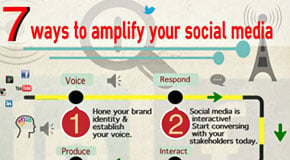Picture this: Mary has been sitting in a hospital bed all morning struggling to cope with her recent medical diagnosis. Looking for a way to interact with other residents in her situation, she clicks on the hospital’s Facebook page. All she sees on the group’s newsfeed, however, is a history of interactions between employees and hospital achievements.
There is no mention of the group yoga session set to occur at noon. There are no subgroups where patients can connect with one another. Instead, the only thing that the patient sees is a string of comments on the recent employee of the month, and a group vote asking what to order for lunch on Friday.
According to a recent study, customer interaction in the healthcare sector is suffering on social media. Hospitals are increasingly focusing on promoting internal dialogue through social media at the expense of patients’ interests. In fact, the report indicated that only one quarter of all posts observed in the study were patient-focused. This is extremely detrimental to the growth of organic user generated content.

“We find that if a hospital devotes its postings towards client-specific communications, then active social media management can still lead to incremental user-generated content, which is a function of the number of clients,” the study says. “However, most hospitals do not do this. Instead, more of their postings are devoted to either generic observations or to employee-related issues and achievements. Such content appears to inspire primarily the employees at the organization to respond, rather than clients.”
In the healthcare industry, patient outreach is a crucial method of preventing those who are sick from feeling like customers in line. Right now, however, only 18 percent of hospitals actively manage their Facebook accounts.
In a setting such as a hospital, customer interests have to come first. As it was proven in a 2012 Global Consumers Survey, one in five customers switched providers in 2012 based on a negative customer service experience. Focusing on employee interests or organizational gains via social media does nothing to help those who are actually in need.
Likewise, prospective patients will look at social media pages as a means of gauging the level of care they are to receive. In fact, 90 percent of adults between the ages of 18-24 claim that they would trust medical information from peers across a social media network. Further, 41 percent of people claim that social media would play a role in choosing a healthcare provider.
Failing to cater to this demographic could be detrimental to a hospital’s marketing strategy. By keeping the conversation focused on patients, however, this could be avoided. At the end of the day, nobody likes to hear an organization talk about itself excessively.
Edited by
Brooke Neuman















